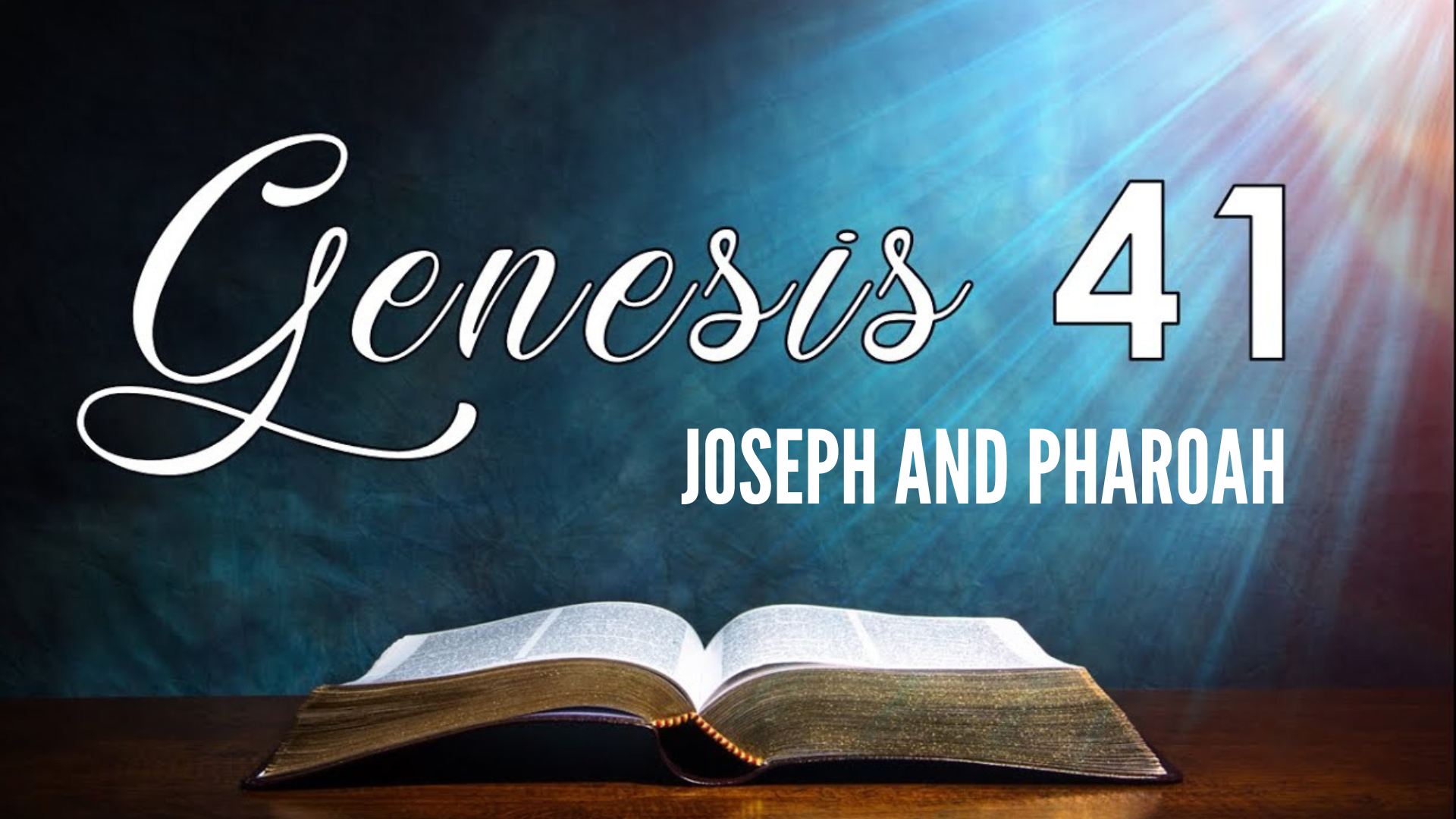1. Source of True Wisdom (Job 28:12-28; Proverbs 2:1-6; 9:10)
2. Wisdom for Living (Proverbs 3:1-18; Psalm 1:1-6)
3. Goal of True Wisdom (Ecclesiastes 7:11-12; 12:9-14)
Central Truth: Reverence for God is the beginning of true wisdom.
Focus: Recognize that God is the source of true wisdom and pursue godly wisdom.
Evangelism Emphasis: True wisdom is found only in acknowledging Jesus Christ as Savior and Lord.
Golden Text: “ The fear of the Lord is the beginning of wisdom: and the knowledge of the holy is understanding” (Proverbs 9:10).
INTRODUCTION
Wisdom is a gift from God. The Creation story tells us that God placed two unique trees in the Garden of Eden—the Tree of Life and the Tree of the Knowledge of Good and Evil (Gen. 2:9). The Tree of Knowledge of Good and Evil symbolizes life without knowing God. This is moral autonomy without the knowledge of the holiness of God. This leads to moral chaos in which everyone does what is right according to their own understanding (Deut. 12:8; Judg. 17:6; 21:25; Jer. 17:5; Rom. 1:28).
In Exodus, wisdom is a gift of the Spirit of God that grants artistic skill in “all manner of workmanship” (31:3; cf. 28:3; 35:31). In Deuteronomy, wisdom is the proper understanding of the covenant law that leads to a blessed and successful life (4:6). Joshua was “full of the spirit of wisdom,” which speaks to his abilities to lead the people of Israel in the military conquest of Canaan (34:9).
King Solomon was renowned for “wisdom and understanding exceeding much, and largeness of heart” (1 Kings 4:29). In the ancient world, the heart was the center of knowledge and understanding. The heart also acted as one’s conscience—the seat of moral and ethical thought. Solomon’s wisdom was understood as great intelligence; that is, knowledge of the laws and literature of the world around him (vv. 29-30). It was the integration of heart and mind around the wisdom of God that enabled Solomon to “administer justice” (3:28 NASB). Likewise, during the return from exile, Ezra was to appoint magistrates and judges according to the wisdom of God to govern the people (Ezra 7:25).
In Hebrew wisdom literature, the Tree of Life is a symbol for the gift of divine wisdom (Prov. 3:13, 18). The prophet Daniel was filled with the Spirit and gifted with “illumination, insight and wisdom” that enabled him in the “interpretation of dreams, explanation of enigmas and solving of difficult problems” (Dan. 5:11-12 NASB). In Revelation, the Tree of Life is mentioned four times and represents the ultimate victory of life over death for those who have been faithful to God in this present evil age (2:7; 22:2, 14, 19). The fruit of the Tree of Life, wisdom , is the key to the blessed life. So, wisdom is the right knowledge of God, and knowledge from God. It guides all aspects of life so we may receive divine blessing and prosper in the world.
1. SOURCE OF TRUE WISDOM
The story of Job is that of a righteous man trying to make sense of evil in the world in which God reigns. Humans seek to understand the world. The sciences, philosophy, literature, and religion are various human endeavors of understanding. Job 28 is an ancient poem that acknowledges the industry and intellect of humanity, but insists that discovering true wisdom lies far beyond human endeavor.
A. Where Wisdom Cannot Be Found (Job 28:12-22)
12 But where shall wisdom be found? and where is the place of understanding? 13 Man knoweth not the price thereof; neither is it found in the land of the living.
14 The depth saith , It is not in me: and the sea saith , It is not with me. 15 It cannot be gotten for gold, neither shall silver be weighed for the price thereof.
Ancient humans were adept in various technologies—construction, shipbuilding, mechanics, and mining. Mining technologies allowed ancient human civilizations to extract the raw materials (copper, tin, gold, silver, iron, gemstones, etc.) needed to construct weapons, machines, and buildings. Job 28:1-11 celebrates human genius involved in mining. Humans prove to be more ingenious than all the creatures of the earth. Even so, wisdom cannot be discovered in the depths of the earth, nor by human ingenuity.
Intellectual endeavors have moved human civilization into the Atomic Age, the Space Age, and the Digital Age. Even as human knowledge expands at an exponential rate, the discovery of wisdom remains elusive. We have created a world of technological marvel, but in doing so we have polluted, even poisoned, the planet. Humans have the intellectual capacity to harness the nuclear power, but we do not have the wisdom to avoid war (Eccl. 9:18). The American scientist E. O. Wilson once said, “We are drowning in information, while starving for wisdom.” Even as human knowledge about the world increases exponentially, humans remain profoundly ignorant about the ways of God (Dan. 12:4; Amos 8:12; Rom. 1:22-23).
The value of wisdom exceeds all the treasures of the earth—more than gold and silver, more than gemstones (Job 28:15-19). In our day, young men and women spend an average of $57,000 for a college education, but wisdom is not included in the curriculum. Wisdom is “hidden from the eyes of all living” (v. 21 NASB), but is necessary to a prosperous life. King Solomon, in his youth, pursued wisdom and his kingdom flourished. However, as he gained power and wealth, he forsook the wisdom of God. As an old man, he declared, “In much wisdom there is much grief, and increasing knowledge results in increasing pain” (Eccl. 1:18 NASB). Human history is filled with men and women who acquired riches and power, but did not have the wisdom to properly use them. The reckless and foolish use of riches and power leads to misery and destruction. A good life is more than power, wealth, and knowledge. A good life requires godly wisdom in the use of power, wealth, and knowledge.
-
Answer the questions in verses 12 and 20.
B. Where Wisdom Can Be Found (Job 28:23-28)
23 God understandeth the way thereof, and he knoweth the place thereof.
28 And unto man he said, Behold, the fear of the Lord, that is wisdom; and to depart from evil is understanding.
True wisdom cannot be found in the depths of the earth, nor in the collective minds of humanity. Only God can see “everything under the heavens” (v. 24 NASB). In Scripture, to “see” is to understand. God’s Word challenges us to behold (to see, observe, and understand) the Lord, who understands all things. God can be known only through faith (Heb. 11:6). An old proverb says, “Experience is the best teacher.” Through faith we encounter God, and that encounter is an experience that teaches us the ways of God. Among the gifts of the Spirit are words of wisdom and knowledge (1 Cor. 12:8; Eph. 1:17). Wisdom is a gift of God that is to be nurtured through prayer, the study of the Scriptures, and worship (James 1:5; Col. 3:16).
The apostles distinguished between the wisdom of the world and the wisdom of God. Worldly wisdom is at best foolishness, and at worst demonic (1 Cor. 1:20; James 3:15). Whereas worldly wisdom provokes “jealousy and selfish ambition,” godly wisdom is pure, peaceable, reasonable, and righteous (James 3:16-18 NASB).
Job 28:28 says godly wisdom has two components: the fear of God and resisting evil. In C. S. Lewis’ The Lion, the Witch, and the Wardrobe , Aslan, the great lion (a Christ figure), is said to be “good, but not safe.” With the emphasis of God as loving Father, Christ as forgiving Savior, and the Holy Spirit of grace, we often forget that God is both safe and dangerous. God is to be feared because God is great, “triumphant and terrible” (Deut. 10:17 NJB).
Wisdom is required in the proper worship of God. Nadab and Abihu , the sons of Aaron, served as priests, but they did not fear God. One day, as they were offering improper sacrifices, “there went out fire from the Lord, and devoured them, and they died before the Lord” (Lev. 10:2). Wisdom demands that worshipers exercise caution in the house of God lest they offer the “sacrifice of fools” (Eccl. 5:1-8).
-
Why must we reverence God in order to be wise?
C. Instruction for the Young (Proverbs 2:1-6)
1 My son, if thou wilt receive my words, and hide my commandments with thee; 2 So that thou incline thine ear unto wisdom, and apply thine heart to understanding;
5 Then shalt thou understand the fear of the Lord, and find the knowledge of God. 6 For the Lord giveth wisdom: out of his mouth cometh knowledge and understanding.
The purpose of wisdom literature is the instruction of young people by experienced elders. To use a modern term, this is the practice of mentoring . This requires a relationship of mutual love and respect between father and son (or mentor and mentee), both seeking the heart of God. The transmission of wisdom from one generation to the next is not limited to males—father to son. Proverbs 31 contains the words of King Lemuel that were taught to him by his mother, a woman of virtue and honor. Also, Paul encouraged Timothy to retain the words of faith taught to him by his mother and grandmother (2 Tim. 1:5).
Each generation faces challenges of its own, but godly wisdom endures through the ages. Proper mentoring is not simply repeating old wisdom, but applying old wisdom to new realities. The young are urged to open their ears and heart to godly wisdom (Prov. 2:2), and to seek it as a treasure (v. 4), and God will give it to them (vv. 5-6).
Wisdom comes from the mouth of God (v. 6). God created the cosmos through spoken words of wisdom (3:19). There are many mysteries imbedded within the workings of the cosmos—the structure of the atom, the nature of pulsars, the possibility of intelligent life beyond the Earth, and many others. Although scientific endeavor can help us understand the how and what of the cosmos, it cannot discover the Who from which it all originates. God has graciously revealed Himself through inspired words: “Every part of Scripture is God-breathed and useful one way or another—showing us truth, exposing our rebellion, correcting our mistakes, training us to live God’s way” (2 Tim. 3:16 MSG). God’s Word is food for the soul which satisfies humanity’s hunger for wisdom (Matt. 4:4). Wisdom is learned by meditating on the words of God (Josh. 1:8; Ps . 1:2; 27:4).
-
How does James 1:5 echo Proverbs 2:4-6?
D. Wisdom Leads to Human Flourishing (Proverbs 9:10)
10 The fear of the Lord is the beginning of wisdom: and the knowledge of the holy is understanding.
God gave humans dominion to properly cultivate, maintain, and rule the earth, which requires divine wisdom. God gave such wisdom to Adam, who cultivated the garden (signifying judicious horticulture, and named the animals (signifying proper animal husbandry). God has called humans to wisely manage all the resources of the earth. By caring for the earth, we bequeath her resources so that subsequent generations may thrive.
God’s law is given as common grace to all humans (unbelievers and believers) so we might be governed in justice and righteousness. Living by the law of God leads to a blessed life. In other words, life choices informed by the Holy Scriptures lead to a life of increased peace and goodness (Deut. 5:33; 6:2). Wise living includes honoring one’s parents (Ex. 20:12); fleeing sexual immorality (Prov. 2:16; 6:24); diligent work (12:24; 13:11); saving money (13:11; 21:20); avoiding debt (22:7, 26); and caring for the poor (14:21, 31).
Faith-Filled Astronaut
John Glenn was the first American to orbit the earth in space. He is an icon of the Space Age and a man of faith and science. Returning from his last flight in space at the age of 77, he declared, “To look out at this kind of creation and not believe in God is to me impossible. It just strengthens my faith” ( Washington Post , Dec. 8, 2016). The apostle Paul declared, “For since the creation of the world His invisible attributes, His eternal power and divine nature, have been clearly seen, being understood through what has been made, so that they are without excuse” (Rom. 1:20 NASB). Intellect is God’s gift to humans that allows us to discover and explain the world around us. Faith is God’s gift that allows us to know God, and trust God in those mysteries we cannot understand. All truth, scientific and religious, has its source in the knowledge of God.
2. WISDOM FOR LIVING
A. Redemptive Lift (Proverbs 3:1-10)
5 Trust in the Lord with all thine heart; and lean not unto thine own understanding. 6 In all thy ways acknowledge him, and he shall direct thy paths.
9 Honour the Lord with thy substance, and with the firstfruits of all thine increase: 10 So shall thy barns be filled with plenty, and thy presses shall burst out with new wine.
To “trust in the Lord” (v. 5) is to reject self-reliance in favor of God’s grace. It is to acknowledge that one’s success is not self-made, but God-empowered. Living in the knowledge and wisdom of God is the path to a good and prosperous life. Donald McGavran wrote that the transformative power of the Gospel can effect “redemption and lift” in the lives of believers ( Understanding Church Growth ). As we live in the wisdom of God, we discover His ways lead to a more fruitful and productive life (v. 8).
Verse 9 teaches that our material possessions are to be used to honor God. Specifically in tithing and the giving of offerings, we are to contribute directly to service for God. The Israelites were to give a tenth of all their increase or income from their fields, herds, flocks, and vineyards. They also were to give various offerings as part of their thanksgiving. God had provided for them, and as good stewards they were to return a portion to Him.
As a result of honoring God with their stewardship, they would continue to enjoy harvests from their fields and vineyards (v. 10). There would be sufficient harvest to fill the barns and winepresses. Notice, nothing is said about having to build more and bigger barns or a winepress with greater capacity. This emphasizes the principle of being blessed sufficiently. Those who willingly and regularly follow the stewardship concept never lose; rather, they are blessed of God.
-
According to these ten verses, how does God bless people who live by His principles?
-
B. Discipline Leads to Discipleship (Proverbs 3:11-18)
11 My son, despise not the chastening of the Lord; neither be weary of his correction: 12 For whom the Lord loveth he correcteth ; even as a father the son in whom he delighteth . 13 Happy is the man that findeth wisdom, and the man that getteth understanding.
The wise person understands that even as we live according to the ways of God, sometimes life involves suffering, which should be understood as “the chastening of the Lord” (v. 11). Sometimes suffering is a consequence of sin (Num. 32:23; Isa. 59:12). God caused the people of Israel to wander through the wilderness for forty years because of their rebellion (Num. 14:23). But it is a mistake to assume that all suffering issues from sinful behavior (John 9:1-3). The story of Job reminds us that even the righteous suffer, and that human suffering has a redemptive purpose (Job 5:17).
In agreement with Proverbs 3:12, the writer of Hebrews acknowledges the sorrowful aspects of suffering, but insists that suffering should be understood as the discipline of a loving Father God because it trains faith and produces holiness and righteousness (12:3-11). The apostle Paul acknowledged that his own suffering taught him the necessity of human humility and the sufficiency of God’s grace (2 Cor. 12:7-10).
Proverbs 3:14 says obtaining wisdom is more profitable than merchandising in silver and gold. “She is more precious than jewels; and nothing you desire compares with her” (v. 15 NASB). Living by godly wisdom leads to a longer, richer, and more peaceful life than one can know otherwise (vv. 16-17). Wisdom is a “tree of life” (v. 18) with its fruit available to those hungry for God. Jesus declared, “Those whom I love, I reprove and discipline; therefore be zealous and repent” (Rev. 3:19 NASB).
-
Describe the fatherly heart of God (vv. 11-12).
-
C. The Blessed Life (Psalm 1:1-6)
1 Blessed is the man that walketh not in the counsel of the ungodly, nor standeth in the way of sinners, nor sitteth in the seat of the scornful. 2 But his delight is in the law of the Lord; and in his law doth he meditate day and night. 3 And he shall be like a tree planted by the rivers of water, that bringeth forth his fruit in his season; his leaf also shall not wither; and whatsoever he doeth shall prosper.
Those who “delight” in the knowledge of God will be blessed and experience success. To delight in God is to properly position oneself—walking, standing, sitting—in the presence of God. This means avoiding association with “the wicked . . . [the] sinners” and the “scoffers” (v. 1 NASB). Paul reminds us this does not mean we should avoid all sinners, but that we should not allow sinful partnerships that corrupt the life of the righteous community where they live (1 Cor. 5:9-13; 2 Cor. 6:14-18).
The image of a “tree planted by the rivers” (Ps. 1:3) is reminiscent of the Tree of Life in the Garden of Eden. The rivers of the garden nourished the tree, and the tree bore the fruit of life. The wise person, properly positioned in the presence of God and nourished by the law of God, becomes a source of life for the community where they live.
The psalmist draws a sharp distinction between the blessed person and the wicked. Whereas the righteous person thrives in the presence of God and is known by God, the wicked suffers the fate of those unknown by God (Ps. 1:4-6; Matt. 7:23). Whereas the righteous are “firmly planted” (Ps. 1:3 NASB), the wicked are “chaff” (lightweight agricultural waste) driven away by the wind (v. 4). Those who build their lives on the strong foundation of God’s Word will survive the storms of life (Matt. 7:24-27). “For the Lord knoweth the way of the righteous; but the way of the u ngodly shall perish” (Ps. 1:6).
-
List several differences between the ungodly and the righteous.
-
Three Basic Rules
There are three basic rules for being lifted out of poverty, all of which are found in the moral teachings of Holy Scripture (Haskins and Sawhill , Creating an Opportunity Society ). First, don’t have children before marriage. This is the number one cause of poverty. Children born to single mothers are most susceptible to the ravages of poverty. Sexual immorality has profound social and economic consequences (Prov. 5:3-4; 6:26).
Second, don’t use alcohol or drugs (20:1; 21:17; 23:21). Substance abuse leads to destructive behaviors that inhibit gainful employment.
Third, get an education (10:14; 22:29; 24:4-5). Education increases one’s skills and competencies, which add economic value. Wise moral choices contribute to redemptive lift.
3. GOAL OF TRUE WISDOM
A. An Inheritance of Life (Ecclesiastes 7:11-12)
11 Wisdom is good with an inheritance: and by it there is profit to them that see the sun. 12 For wisdom is a defence , and money is a defence : but the excellency of knowledge is, that wisdom giveth life to them that have it.
Throughout the Old Testament the “inheritance” refers to the Promised Land (Ex. 32:13; Num. 16:14; Deut. 3:28). The writer of Ecclesiastes is suggesting that a good life requires more than the Promised Land, more than wealth. Those who lack wisdom are impoverished. This text corresponds with the words of the Law, repeated by Jesus: “Man does not live by bread alone, but man lives by everything that proceeds out of the mouth of the Lord” (Deut. 8:3; Matt. 4:4 NASB). Material wealth can provide what is necessary for human survival; but the words of divine wisdom are necessary for human flourishing.
Wisdom, more so than wealth, is a defense against all things that threaten the blessed life. Humanity, exiled from the garden of God, must find a way to survive in a hostile environment in which death is a constant companion (Gen. 3:18-19). The generations of Israel suffered the oppression of Egyptian bondage, they wandered through the barrenness of the wilderness, and even the Promised Land contained threats. Through it all, it was the words of divine wisdom that sustained the people, and offered a way to flourishing.
-
How is wisdom better than money?
B. Looking to the End (Ecclesiastes 12:9-14)
11 The words of the wise are as goads, and as nails fastened by the masters of assemblies, which are given from one shepherd. 12 And further, by these, my son, be admonished: of making many books there is no end; and much study is a weariness of the flesh. 13 Let us hear the conclusion of the whole matter: Fear God, and keep his commandments: for this is the whole duty of man.
The Book of Ecclesiastes was written by an old man looking back on a long life with a wide range of experiences. As he looks back, he also looks forward—to death. The Hebrew word translated as “conclusion” (v. 13) may also be translated as “end.” Solomon is contemplating his own death and struggles to find the meaning of life. He has discovered that power, pleasure, and wealth do not enrich the human experience—life has been futile, lived in vain. There must be something more, something that endures beyond the grave. The only thing that endures beyond the grave is God. Therefore, it is the Word of God—divine words of wisdom—that is the spark of life.
In verse 11, he says the inspired words of God are “like goads to prod us and nails to anchor us. The reference to the ‘one shepherd’ confirms the fact that the teaching of Solomon is God-given” ( Ryrie Study Bible ).
Life has meaning only if lived with God and according to the will of God. The Word of God is the source of life; it is necessary for the flourishing of life; and at the end, it will judge the meaning of life (v. 14).
-
Describe how a particular Scripture verse prodded you to action.
“God’s Word is not merely letters on paper . . . it’s alive. Believe and draw near, for it longs to dance in your heart and whisper to you in the night.”—Lisa Bevere
WISDOM INCARNATE
The apostle Paul referred to Jesus Christ as “the wisdom of God” and “wisdom from God” (1 Cor. 1:24, 30 NASB). John declares that Jesus is the Word with God, the Word who is God, and the Word who “became flesh” (John 1:1, 14). Jesus is the personification of the Word of God and the wisdom of God. Jesus’ words are essential to human life and flourishing. Christians are called to live according to His commandments (13:34-35).
As the wisdom of God who is the Word of God, Jesus is the Way, the Truth, and the Life (14:6). Jesus’ words are the bread that sustains life. Jesus is the Word of God who redeems humanity from the darkness of death (1:4-5). Jesus is the source of abundant life (10:10) and eternal life (3:16). Jesus is the Alpha and Omega, the Beginning and the End, the living One who has defeated death forever (Rev. 1:8, 18). Without Christ, death makes life a futile endeavor. Life with Christ gives life eternal meaning.
Daily Devotions:
M. Moses Receives Wise Counsel ( Exodus 18:13-24 )
T. Bezalel Filled With God’s Wisdom ( Exodus 35:30-35 )
W . Endowed With Wisdom and Understanding ( Daniel 1:17-20 )
T. Wise Men Seek Jesus ( Matthew 2:1-11 )
F. Jesus Grows in Wisdom ( Luke 2:41-52 )
S. Walk in Wisdom ( Ephesians 5:15-21 )
*Adopted from the Evangelical Sunday School Lesson Commentary 2020-2021










